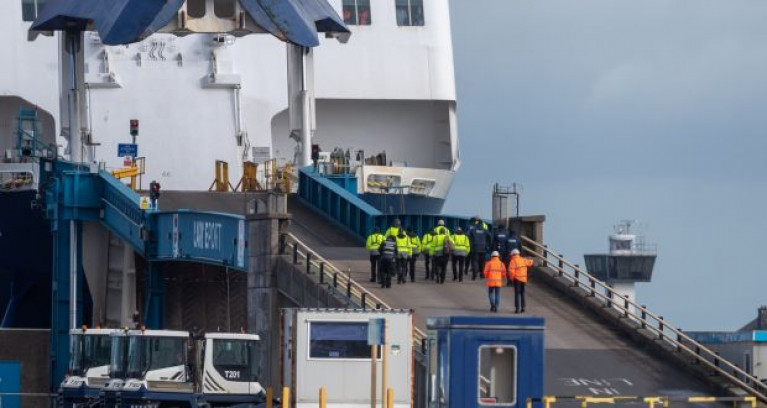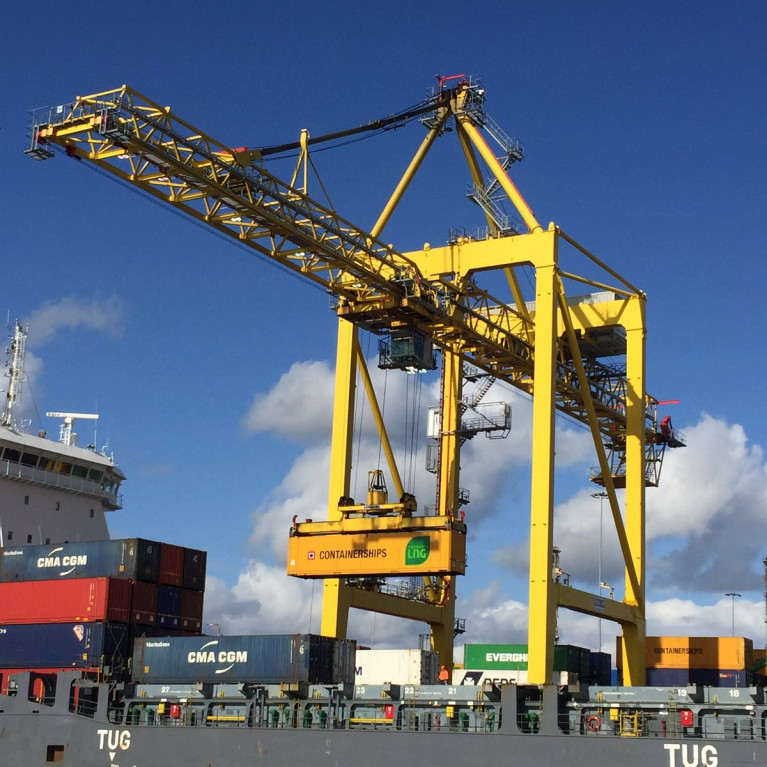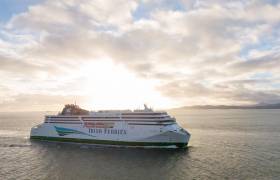Displaying items by tag: Irish Gov
The Irish Government has contacted P&O Ferries seeking details of the impact on its Irish Sea operations of the decision by the UK-based company to suddenly suspend all services and sack its 800 seafaring crew.
P&O currently operates two routes from Ireland, including a Dublin Port-Liverpool route comprising mostly freight traffic along with passengers in cars, and Larne in Antrim to Cairnryan in Scotland, which carries passengers and freight. Both services are suspended after P&O said it was ceasing operating temporarily.
It is understood that P&O accounts for close to 10 per cent of all unitised freight movements through Dublin Port. Sources at the port suggested it was unaware of what is happening.
The Department of Transport said had contacted the company but it had not yet received any details about the Irish impact. It suggested that if services on the Irish routes are affected, other shipping companies will step in to replace it.
Earlier on Thursday P&O Ferries suspended all services and ordered its ships back to port as it announced it was making 800 staff redundant. Unions said the company had sacked all its UK sailors.
The Irish Times has more on the operator's Irish Sea ferry services and those serving UK-mainland Europe routes.
Brexit Plan by Irish Government to Warn on Imports & Exports
Irish Government’s new Brexit plan will explicitly warn businesses that anyone trading with or moving goods through the UK will face changes, no matter the outcome of EU negotiations with Britain.
The plan, writes The Irish Times, is scheduled to be launched this week, most likely on Wednesday, amid renewed fears at Government level over the risks to the economy from Brexit.
Firms are expected to face difficulty getting shipments through ports unless they have completed the correct customs procedures. Trying to export or import without doing so will be “like going to the airport without your passport”, a source said.
The Government is concerned about the prospect of a limited trade deal, or a crash-out Brexit, next January, as well as the prospect of firms being blindsided by the conclusion of the current transition period, at the end of this year.
The plan will also contain an update on registrations for an Economic Operators’ Registration and Identification (EORI) number, which is needed for firms doing business outside the EU. More than 67,000 firms have registered for their number, and these firms are responsible for some 96 per cent in terms of the value of export and 93 per cent of the value of imports.
Irish Government Accused of ‘Standing Idly by’ As UK Bolsters Ferry Links for Brexit
#FerryNews - The Irish Times writes the Government needs to “immediately move” to bolster and diversify transport links to the European Union, the Labour Party has said.
Labour party leader Brendan Howlin said the Government is “standing idly by” while the UK is awarding contracts to charter additional ferry capacity. His comments came as it emerged that the UK will spend more than £100 million (€111m) chartering extra ferries to ease congestion at Dover, in the case of a no-deal Brexit.
“At the same time we have already seen a passive Irish Government response to the decision by Irish Ferries to withdraw from next summer, a direct ferry service to Europe from Rosslare to Cherbourg, France, and ensure a diversity of service,” the Wexford TD said.
“Ireland is now in danger of becoming over reliant on Dublin Port while reducing the potential of the port closest to the EU.”
“Instead it focuses on ensuring the landbridge is kept open, but as we can now see the UK has already charted extra ferries while the Irish Government is only engaging ‘with shipping companies to explore new connectivity and capacity options in response to Brexit’, as their own document published last week says,” Mr Howlin added.
“I am seriously concerned at the lack of strategic planning and foresight in Government about the need to take direct action to secure and enhance our connectivity to the EU.”
As Afloat previously covered the UK’s Department for Transport (DfT) has signed contracts with the following operators, French firm Brittany Ferries, Danish company DFDS and the UK’s Seaborne to ease pressure on Dover.
More on the story here.
































































